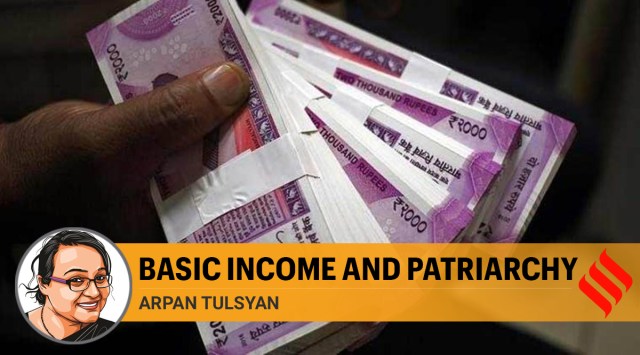- India
- International
A salary to women for domestic work institutionalises idea of men as ‘providers’
It is important to recognise the value of unpaid domestic work. However, creating value isn’t always about fair remuneration.
 Demand for wages against housework was first raised at the third National Women’s Liberation conference in Manchester, England.
Demand for wages against housework was first raised at the third National Women’s Liberation conference in Manchester, England.Last month, Kamal Hasan’s party, Makkal Needhi Maiam, promised salaries to housewives as a part of its electoral campaign in Tamil Nadu. This week, the idea was welcomed by Shashi Tharoor, who tweeted that this will “monetise the services of women homemakers in society, enhance their power and autonomy and create near-universal basic income”. To this, actor Kangana Ranaut said, “we don’t need salary for being the Queens of our own little kingdom”. Tharoor maintained that remuneration will lead to a recognition of the value of unpaid work.
Demand for wages against housework was first raised at the third National Women’s Liberation conference in Manchester, England. International Wages for Housework Campaign (IWFHC) was formed by Selma James in 1972. Since then, several organisations, particularly in the UK, US, Canada and Italy, have raised similar requests.
In India, an application by the National Housewives Association, seeking recognition as a trade union in 2010, was rejected by the deputy registrar of trade unions on the ground that housework is not a trade or an industry. In 2012, the then minister for Women and Child development, Krishna Tirath, announced that the government was considering mandating a salary for housework to wives, from husbands. The purpose, once again, was to empower women financially and help them live with dignity. However, the proposal never materialised and with the change in the government in 2014, the idea was put to rest.
Housework demands effort and sacrifice, 365 days a year, 24/7. Despite this, a huge proportion of Indian women aren’t “queens” reigning over their kingdom, the family. A large number of women live with domestic violence and cruelty because they are economically dependent on others, mainly their husbands. Time-use data from 2019 gathered by the National Sample Survey Organisation revealed that only about a quarter of men and boys above six years engaged in unpaid household chores, compared to over four-fifths of women. Every day, an average Indian male spends 1.5 hours per day in unpaid domestic work, compared to about five hours by a female.
It is thus important to recognise the value of unpaid domestic work. However, creating value isn’t always about fair remuneration. Asking men to pay for wives’ domestic work could further enhance their sense of entitlement. It may also put the additional onus on women to perform. Besides the ethics of buying domestic labour from wife poses a serious risk of formalising the patriarchal Indian family where the position of men stems from their being “providers” in the relationship. And, despite a legal provision, equal inheritance rights continue to be elusive for a majority of women. So, should dowry be converted to policy, with the rationale being to ensure at least some gains are received by daughters from the parental property? That would be a policy short-cut, but perhaps one that is more effective than salary for housework.

More than creating a new provision of salary for housework, we need to strengthen awareness, implementation and utilisation of other existing provisions. Starting from the right to reside in the marital home, to streedhan and haq meher, to coparcenary and inheritance rights as daughters and to basic services, free legal aid and maintenance in instances of violence and divorce.
Our aim cannot be only to ensure “basic income” to women. Women should be encouraged and helped to reach their full potential through quality education, access and opportunities of work, gender-sensitive and harassment-free workplaces and attitudinal and behaviour change within families to make household chores more participative. Once these conditions are met, working inside the home or outside must be a woman’s choice, a freedom that she can exercise for herself.
Just like we do not want women to commodify their reproductive services because of their inherently exploitative nature — we have, therefore, banned commercial surrogacy in the country — let us not allow commodification of housework and personal care. At the same time, let us not ask wives to do what husbands can and need to do for themselves, either out of love or in lieu of money. Let us also raise our boys to be brothers, sons, husbands, and fathers who would obviate the need for such discussion itself.
This article first appeared in the print edition on January 9, 2020 under the title ‘Basic income and patriarchy’. The writer is a senior research scholar at the Department of Social Work, Delhi University.
40 Years Ago
EXPRESS OPINION
More Explained
Apr 18: Latest News
- 01
- 02
- 03
- 04
- 05









































